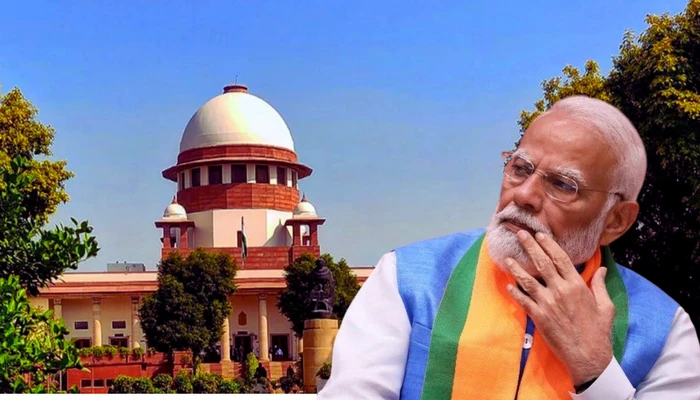The Union government recently cautioned the Supreme Court that a ‘constitutional chaos’ could result if one organ of the state encroached upon the constitutional powers of another organ.
The centre’s remarks were reportedly made in a detailed written submission filed in the presidential reference relating to the Supreme Court verdict that set deadlines on the exercise of constitutional powers of the President and the Governor. A constitution bench of the Supreme Court, led by Chief Justice of India, BR Gavai, had asked the Union and the State governments in July this year to file their written submissions in the presidential reference by 12th August.
Referring to the top court’s verdict that reignited the debate around judicial overreach, the Solicitor General said that the existence of some limited problems in the implementation of the assent process cannot justify the reduction of the higher office of the Governor to a subordinate one. Mehta contended that the offices of the Governor and President are “politically complete” and represent “higher ideals of democratic governance”. He added that any alleged lapses in the assent process should be remedied through political and constitutional mechanisms and not through “unwarranted judicial interventions”.
“When the Constitution seeks to impose time limits for taking certain decisions, it specifically mentions such time limits. Where it has consciously kept the exercise of powers flexible, it does not impose any fixed time limit. To judicially read in such a limitation would be to amend the Constitution,” Mehta said.
Explaining the ambit of Articles 200 and 201, which relate to the power of the President and the Governor to grant assent to bills, the Solicitor General pointed out that the Articles contain four different verbs, viz., ‘assent’, ‘withhold’, ‘reserve’ and ‘return’. He said all four verbs carry different meanings and discretionary scope.
Mehta added that the provisions were carefully crafted by the constitution framers to meet the unforeseen exigencies. He cautioned against setting rigid timelines concerning the provisions, saying that it would render “the intention of the framers nugatory” and would hinder the ability of these constitutional offices to ensure constitutional compliance and protect the democratic principles and the national interest.
Actions of President, Governor under the Constitution immune from court proceedings: Centre
He said that the actions of the President and the Governor fall within the category of proceedings that cannot be called into question in a court of law. “The assent of the governor or the president is integrally connected with the legislative process of a state legislature and attracts the constitutional bars on judicial inquiry under Articles 122 and 212,” Mehta submitted. The Solicitor General pointed out that the President and the Governor enjoy constitutional immunity under Article 361 from court proceedings for acts done in the exercise of their official duties.
Speaking about the Supreme Court’s vast powers under Article 142, Mehta said the court cannot use these powers to amend the Constitution. “Even under its extraordinary powers vested in Article 142, the Supreme Court cannot amend the Constitution or defeat the intent of the Constitution makers, provided there are no such procedural mandates in the constitutional text,” he asserted.
He further added that the provision cannot be used to override constitutional provisions or reallocate powers vested in other organs of the state. “The very width of the power brings with it a high threshold of duty to not exercise the same in such a manner that amends the text of the Constitution itself and fundamental constitutional and legal principles,” Mehta stated.
Background of the case
In May this year, President Droupadi Murmu referred a list of 14 questions to the Apex Court seeking its opinion on them. The questions related to the modifications prescribed by the Supreme Court to Articles 200 and 201, which relate to the powers of the President and the Governor to grant or withhold assent to bills in a verdict passed in The State of Tamil Nadu v The Governor of Tamil Nadu and Anr, in April this year.
The present judgment arose out of a long-standing tussle between the Tamil Nadu government and the Governor, wherein the latter had reserved 10 Bills passed by the state legislature for the assent of the President. A division bench of the Supreme Court, comprising Justices B Pardiwala and R Mahadevan, examined the concerned provisions and prescribed some time limits to be followed by the President and the Governor in exercise of their powers under Articles 200 and 201. The bench prescribed a three-month deadline for the President and one month for Governors to decide on the bills passed by the legislature.
After receiving the Presidential reference, a bench comprising CJI Gavai and justices Surya Kant, Vikram Nath, PS Narasimha and Atul S Chandurkar prepared a nine-day schedule starting from August 19 to decide the 14 constitutional questions referred by the President under Article 143. A Constitutional bench will be hearing the case.
